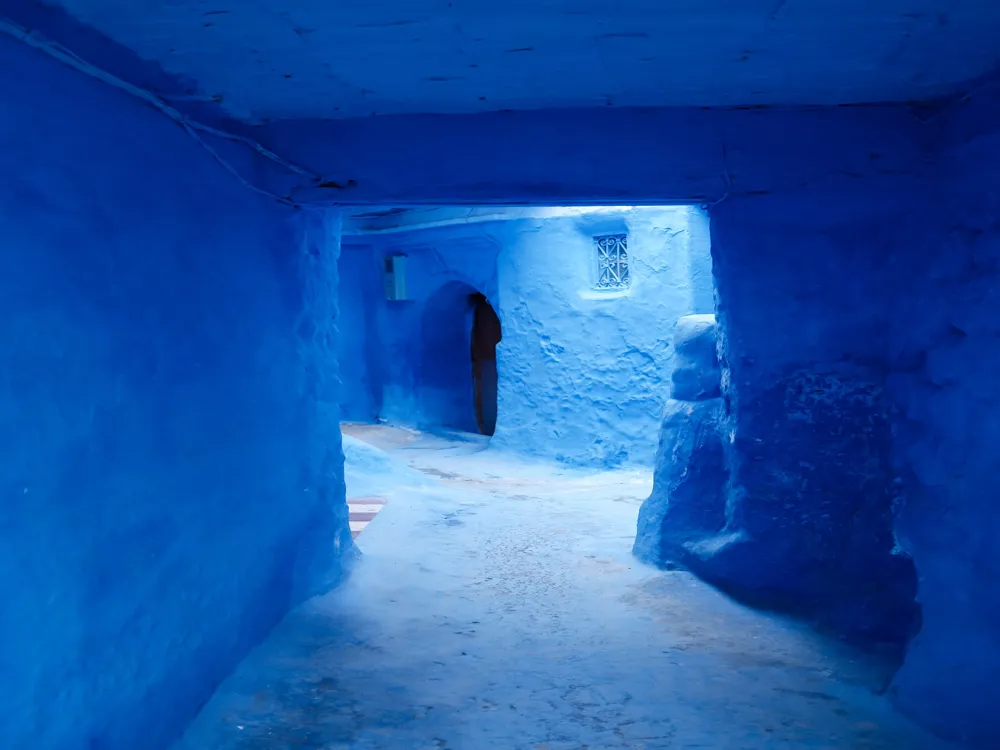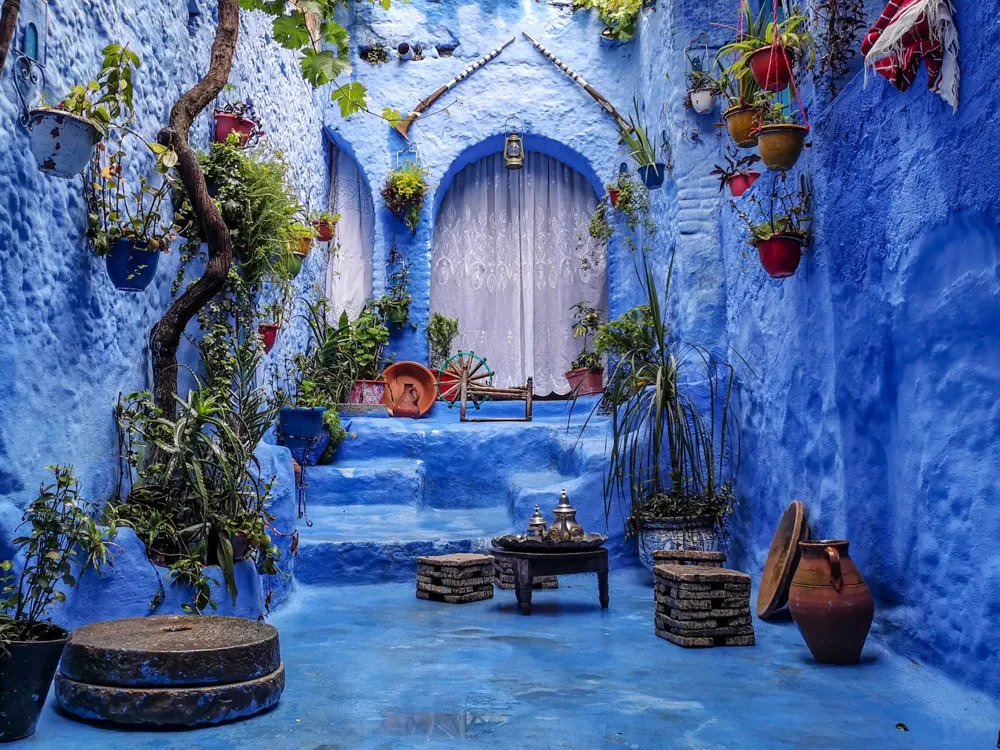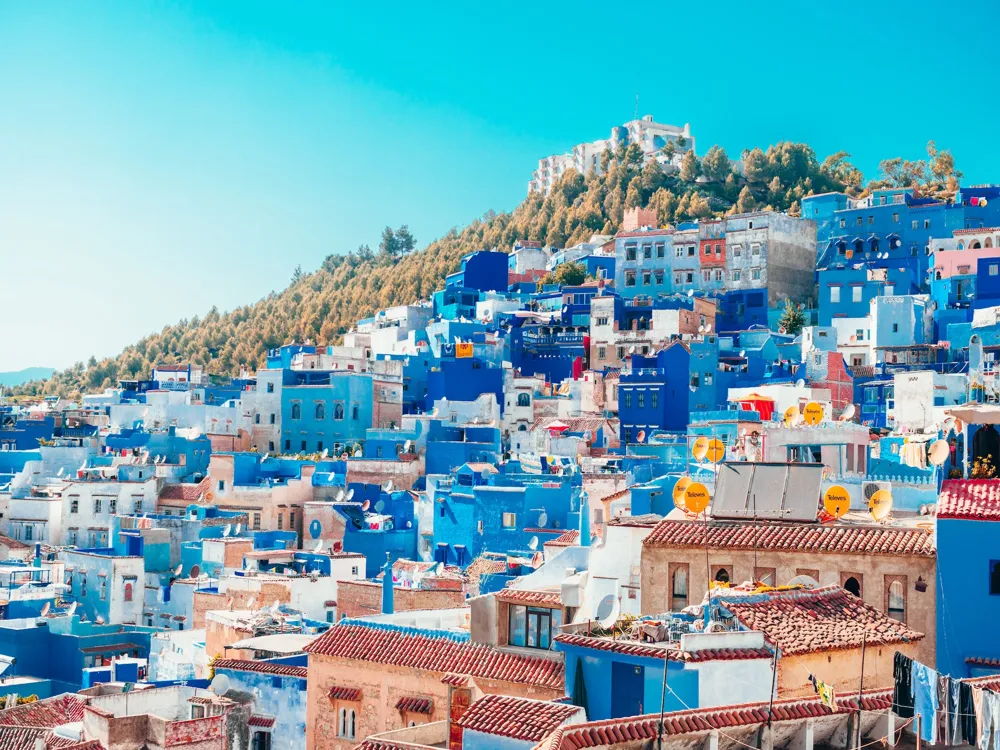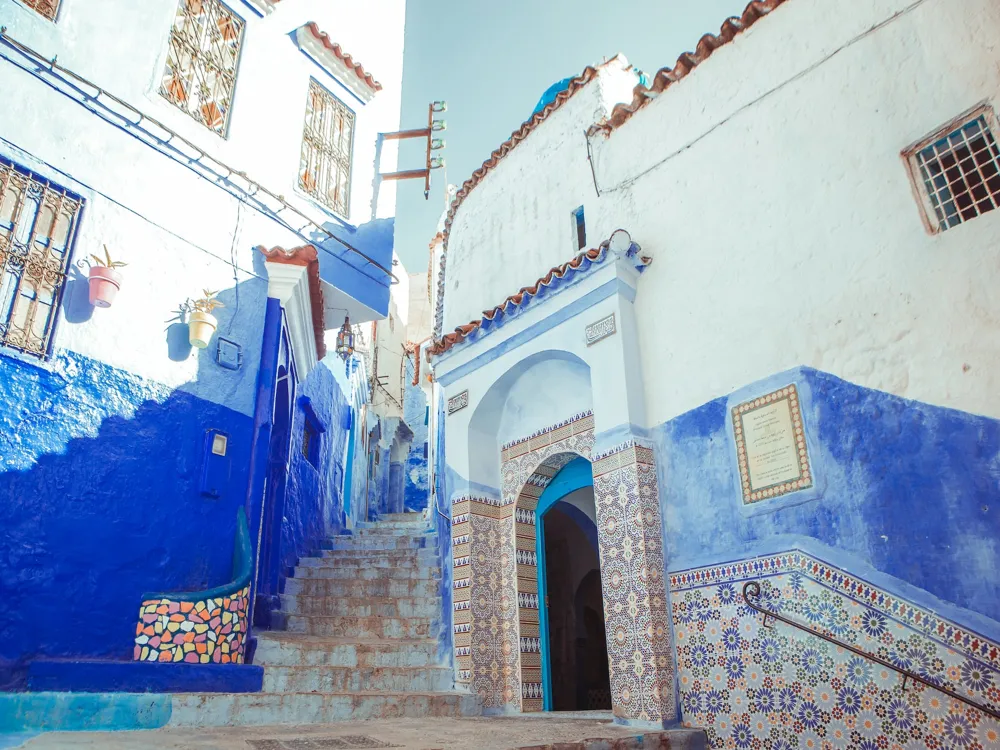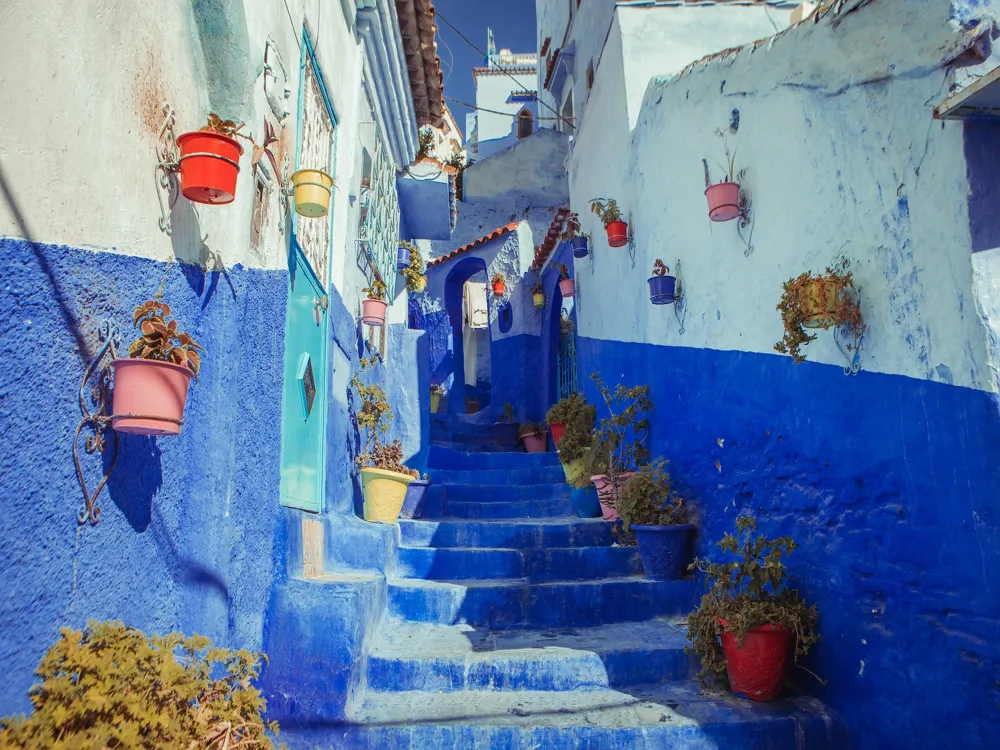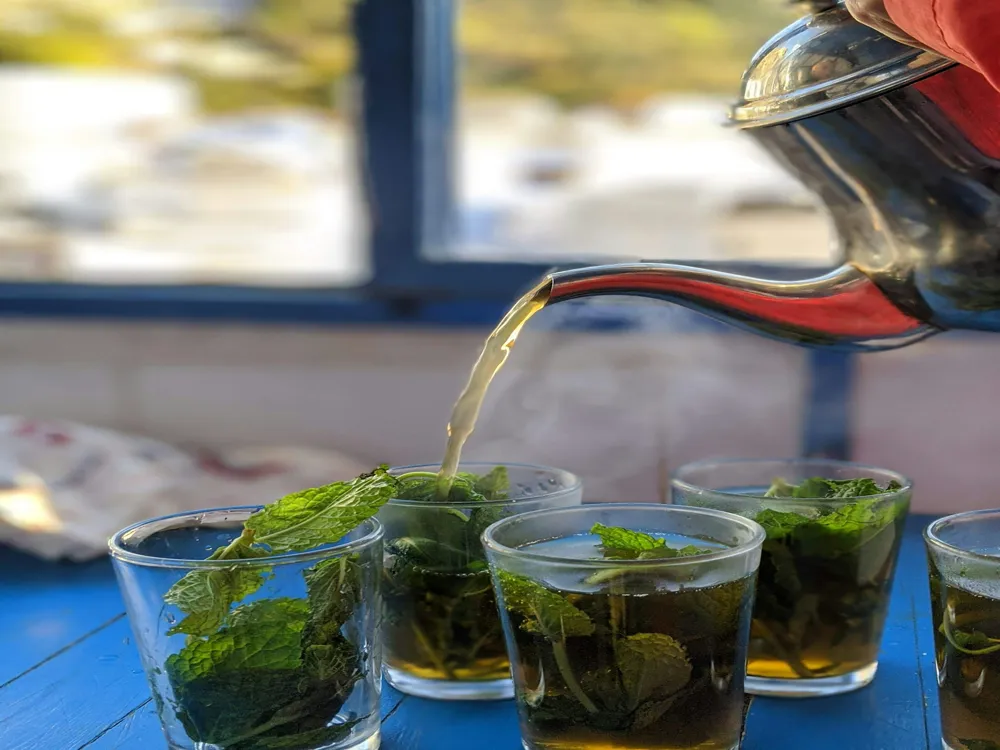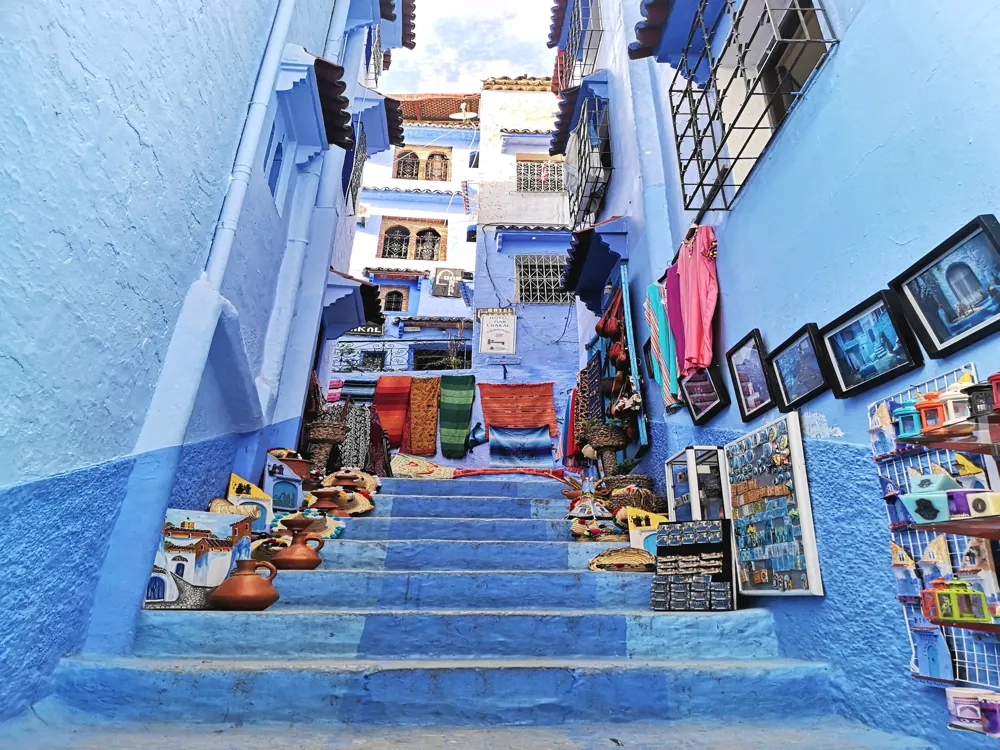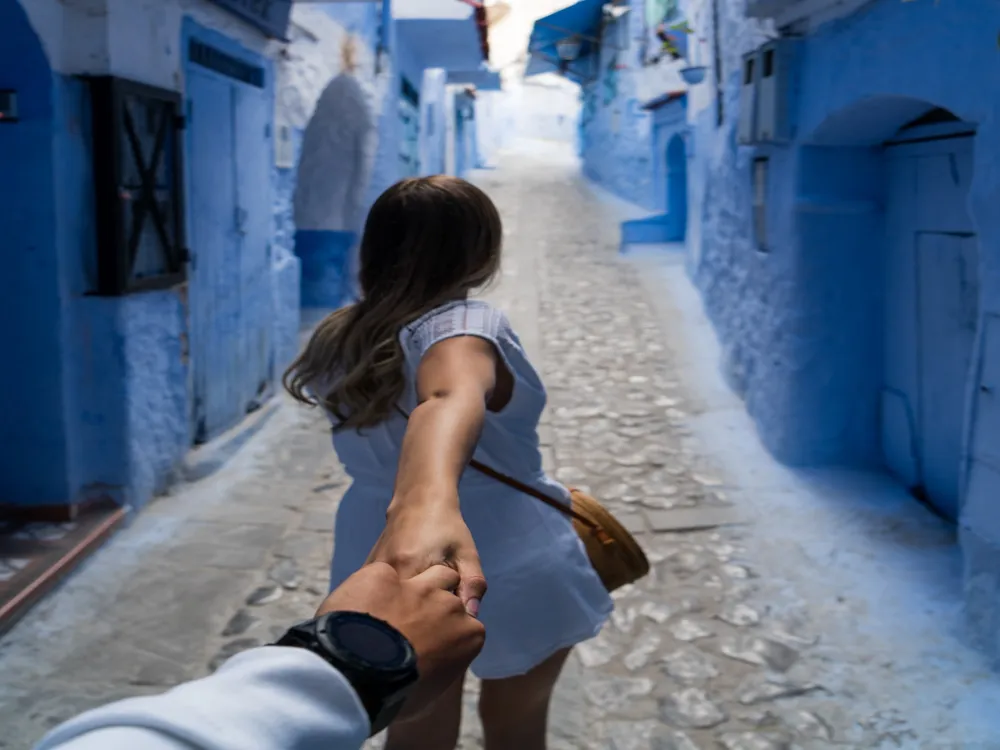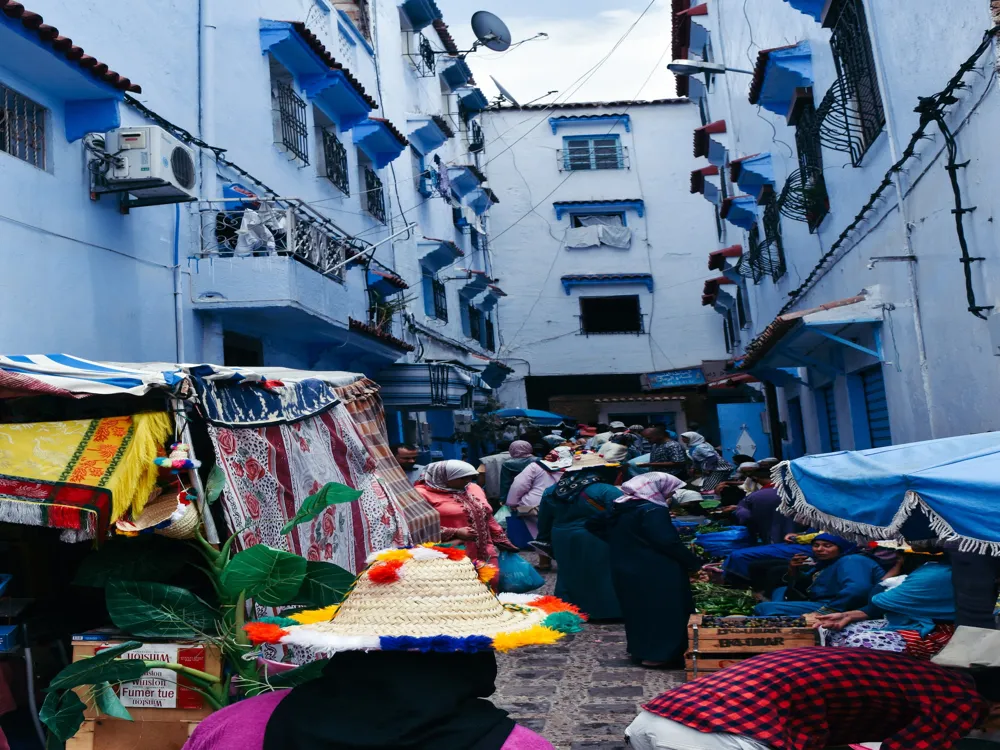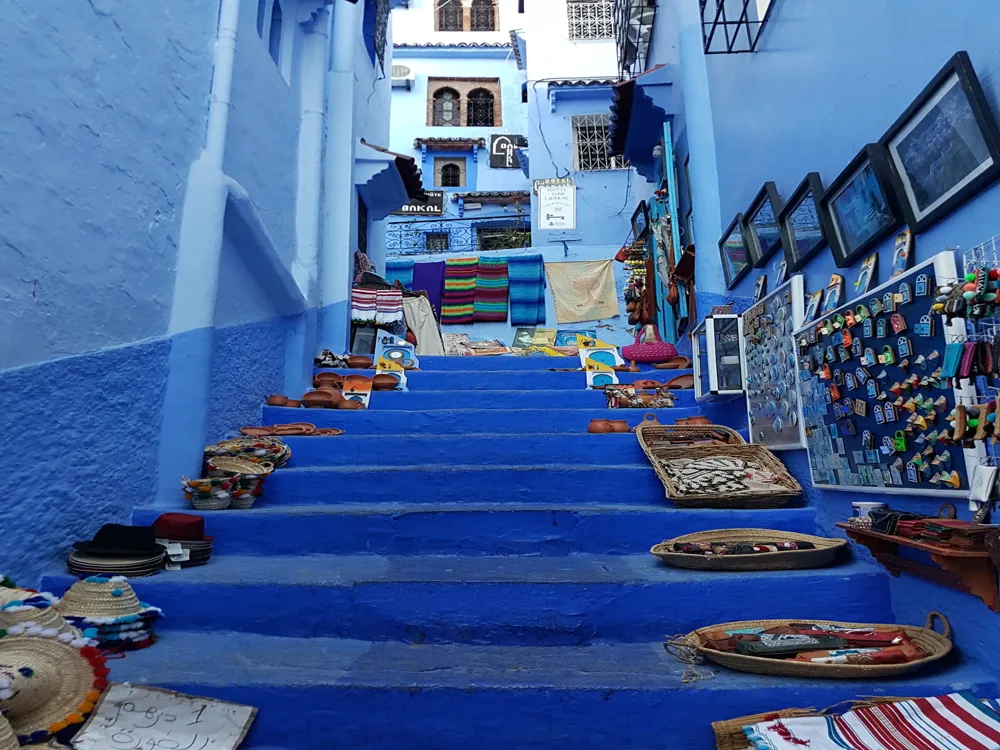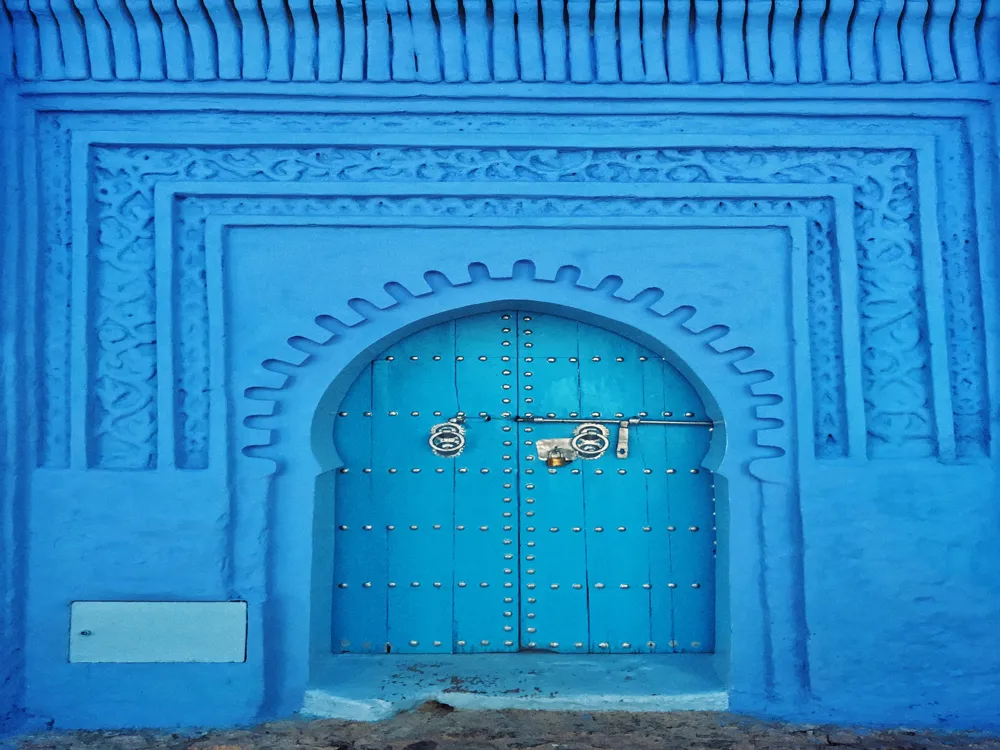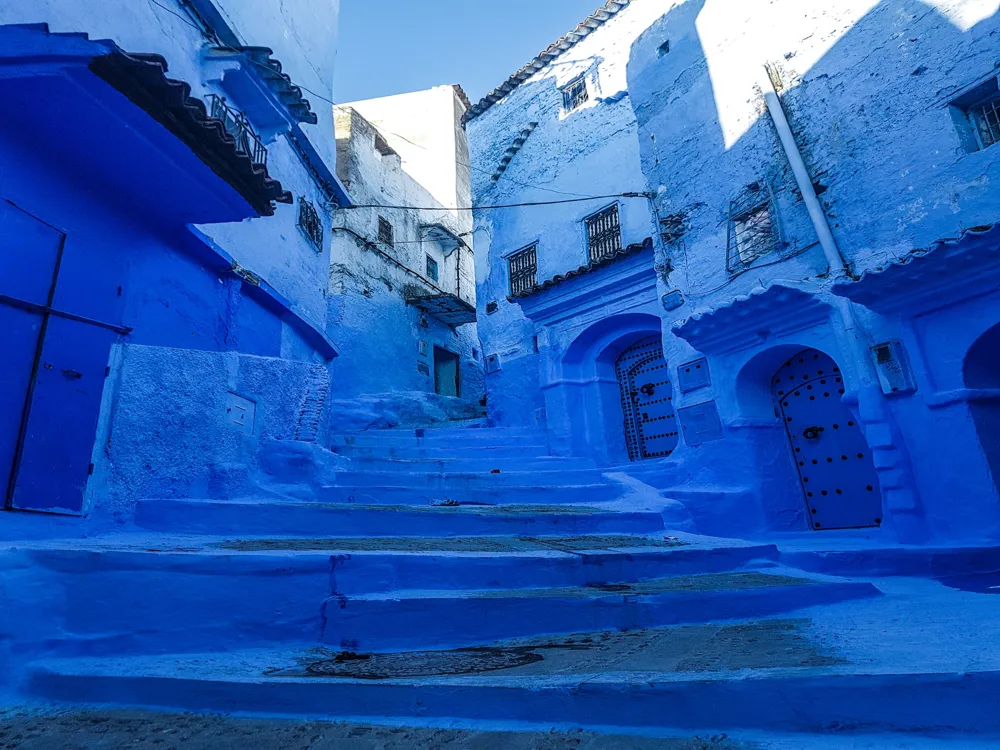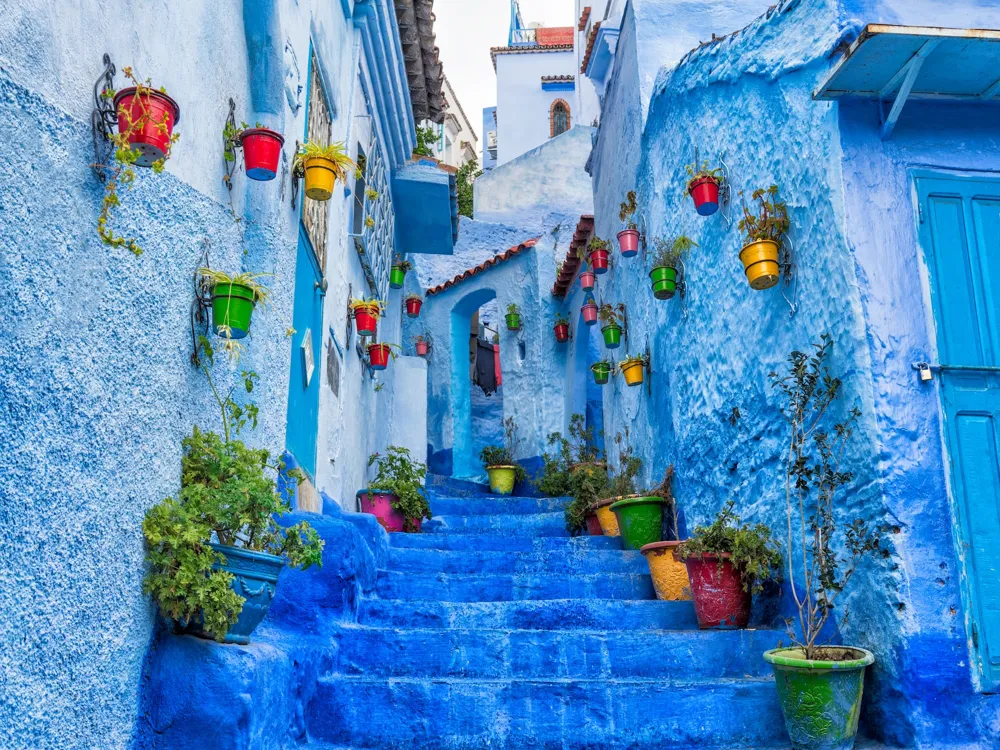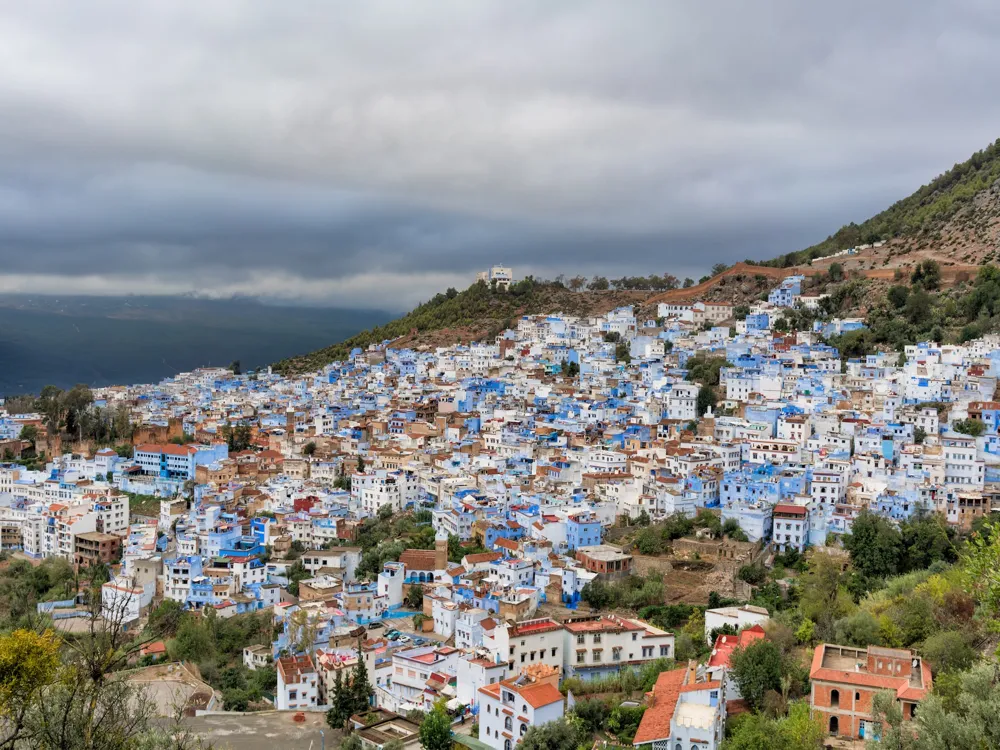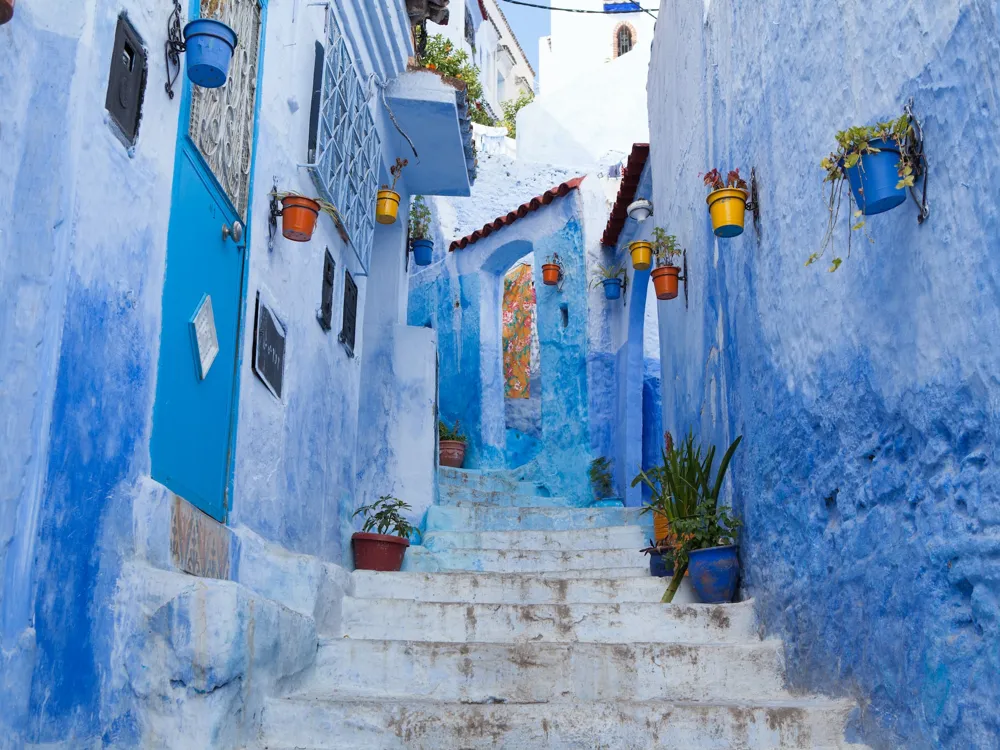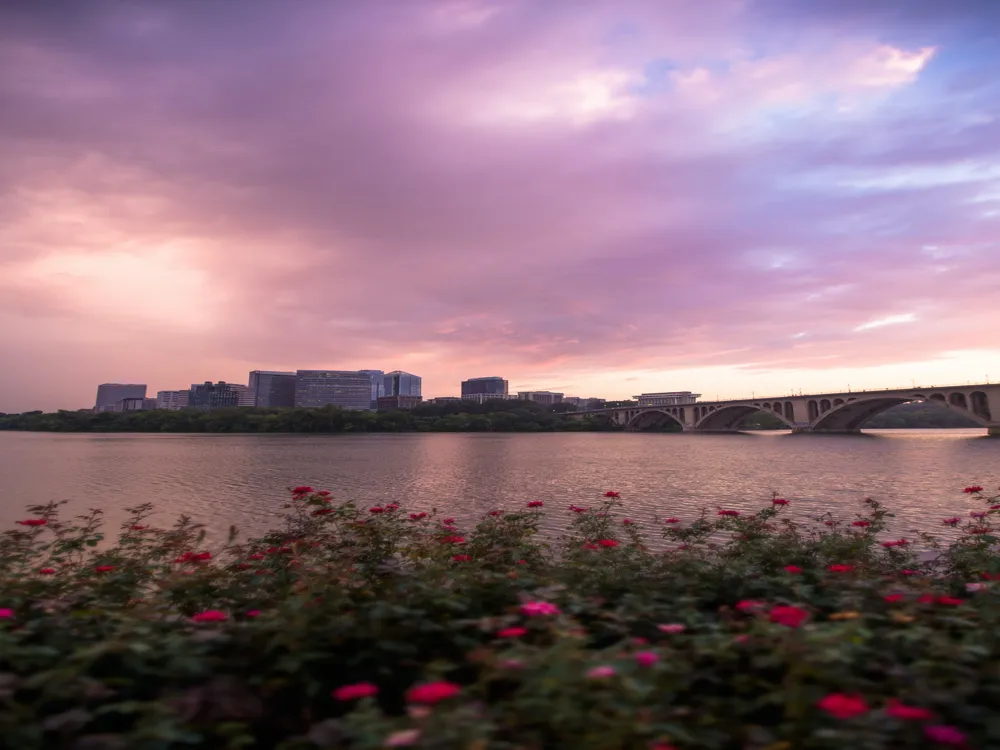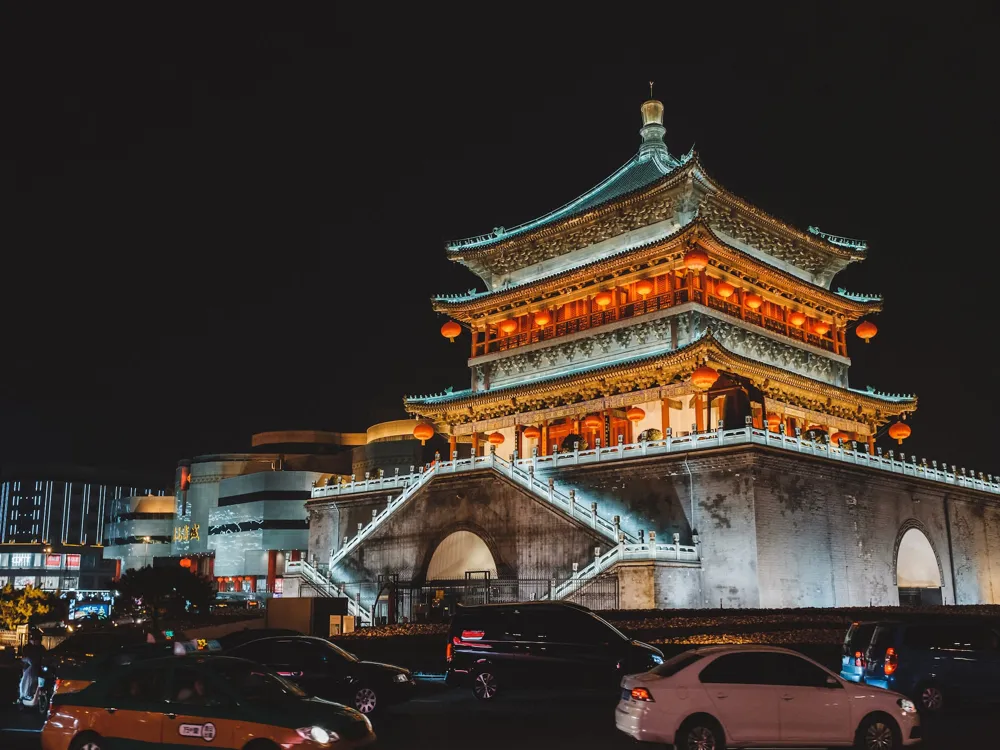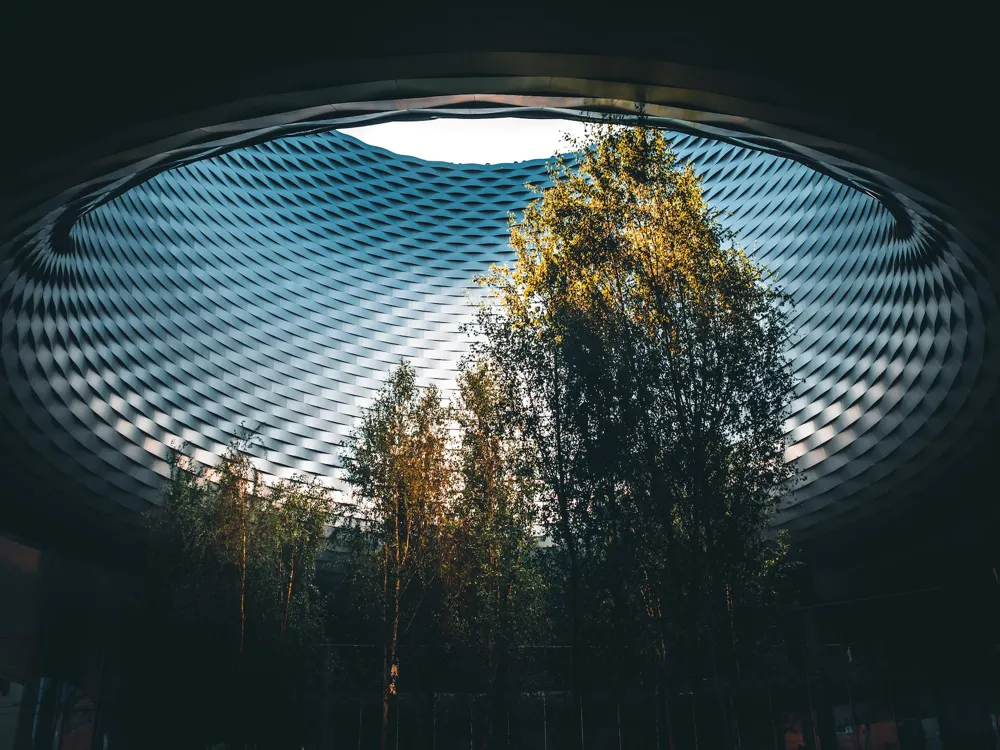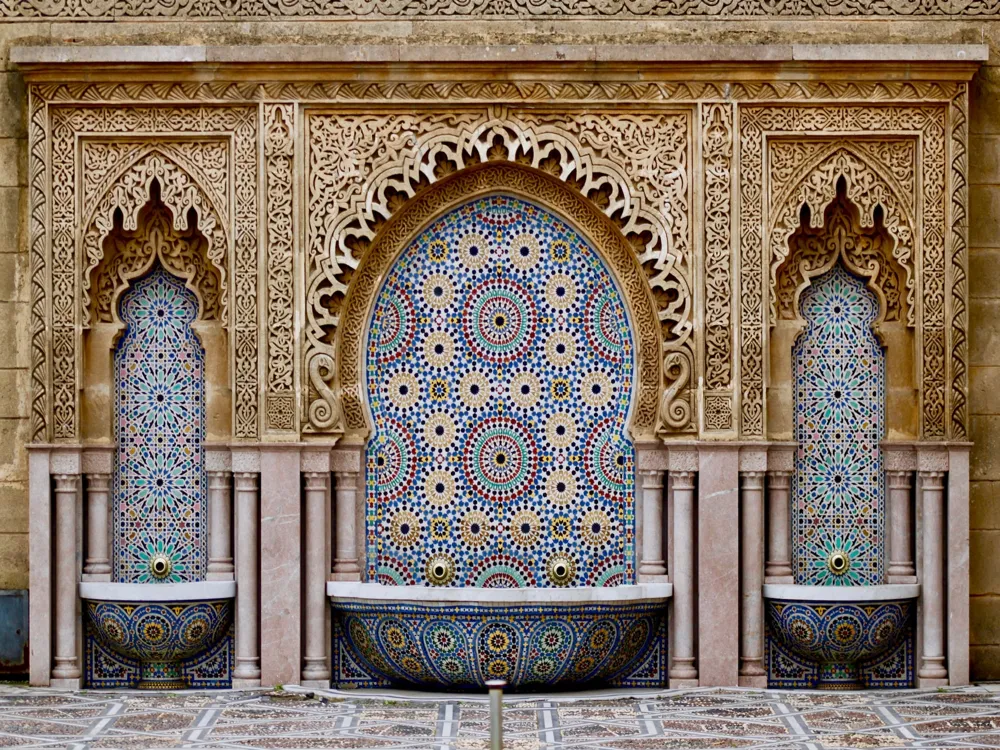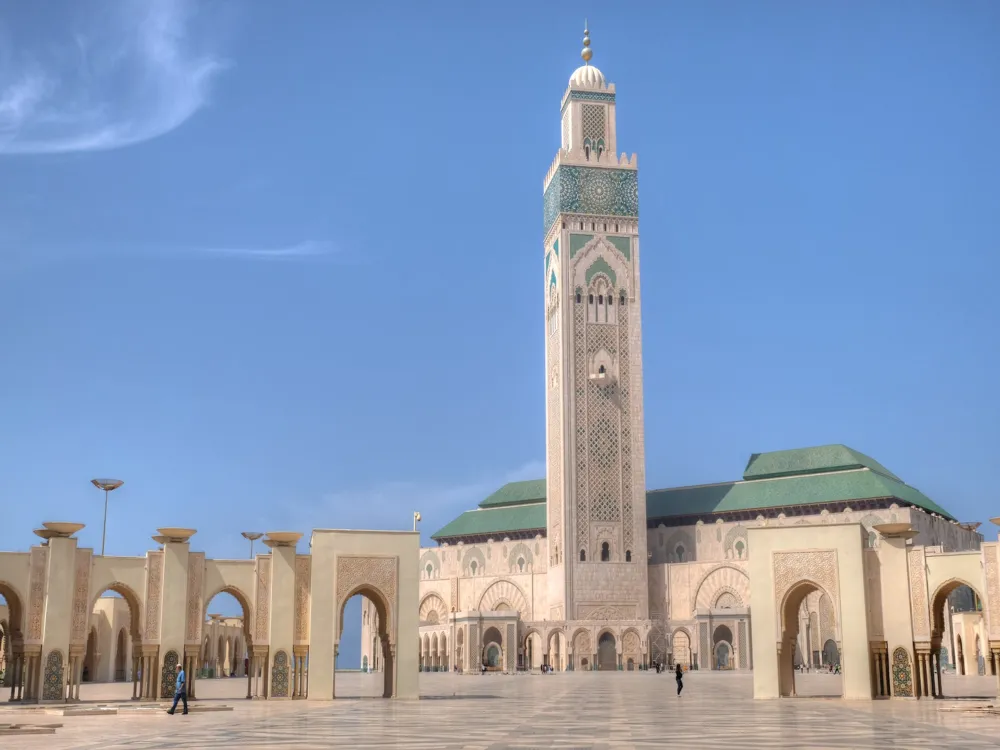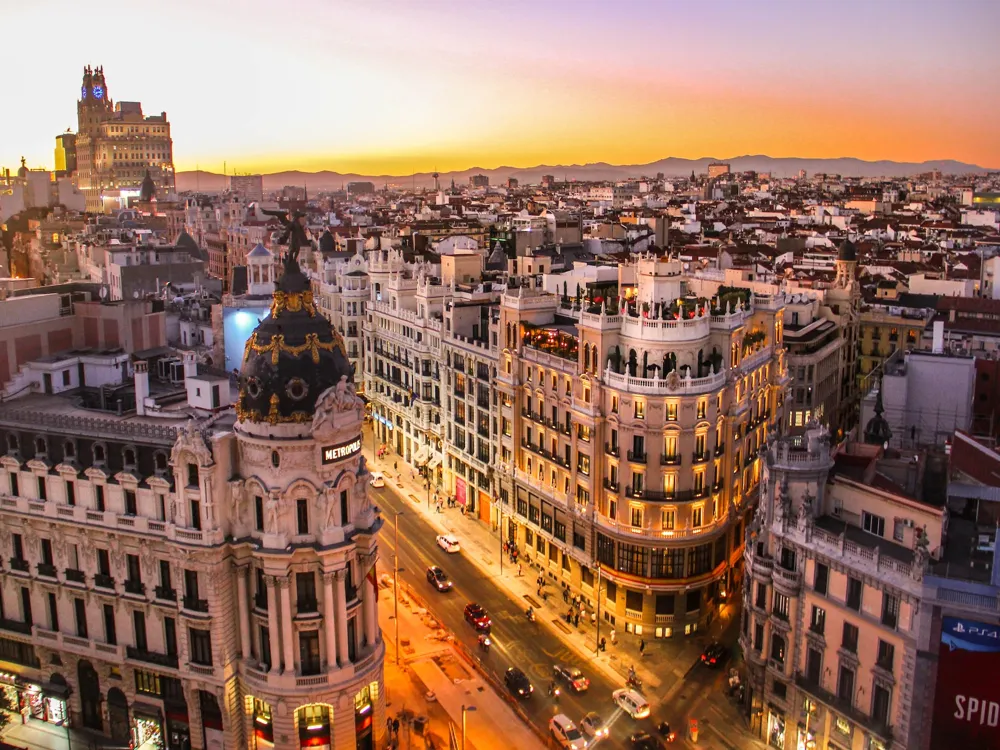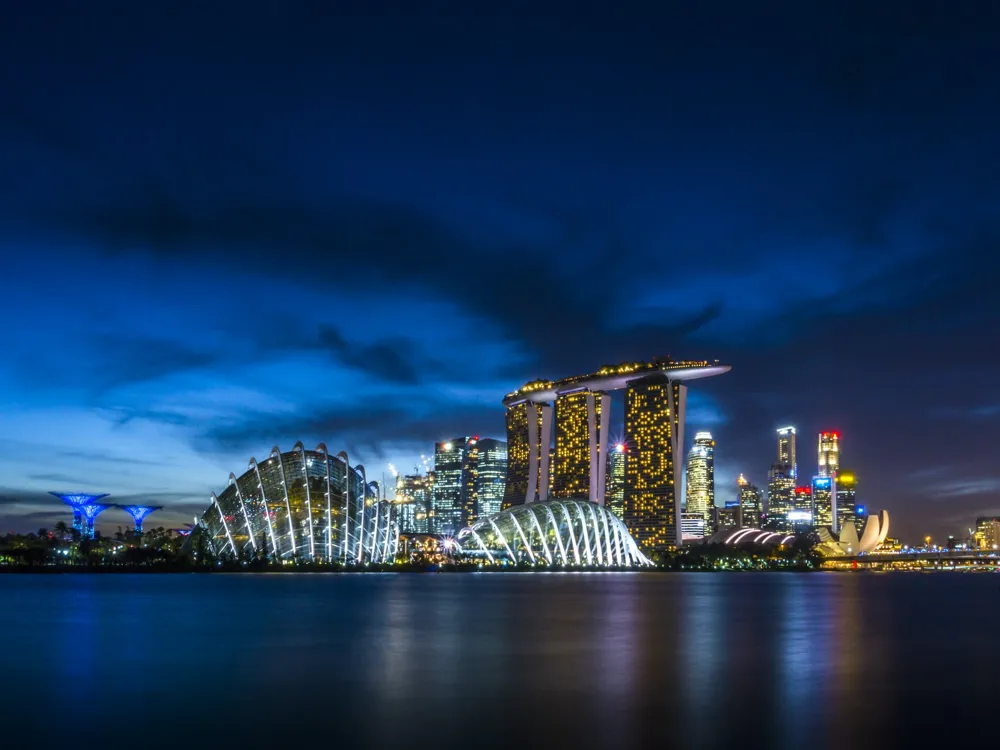Plan Your Travel To Chefchaouen
Places To Visit In Chefchaouen
Akchour Waterfalls
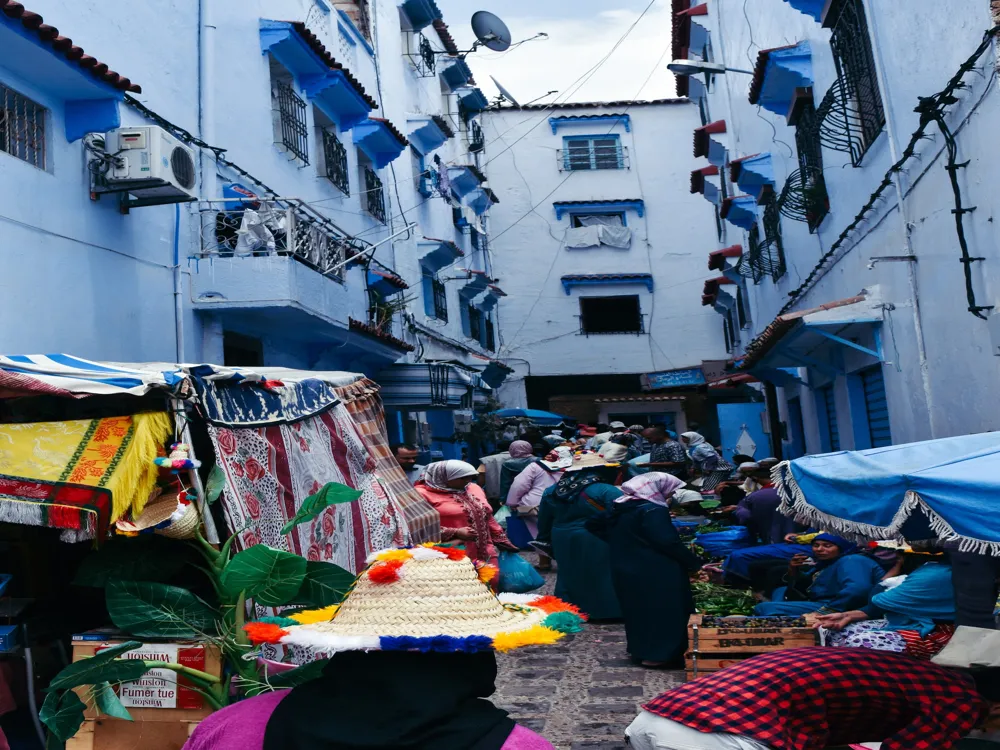
Akchour Waterfalls are a hidden gem of Morrocco located an hour’s drive from Chefchaoueun. The waterfall nestles within the Talassemtane National Park on the slopes of the Rif Mountains. There are a number of smaller cascades till you reach the main drop at the top. The hike is 4 kilometres round trip to the lower falls and around 12 kilometres round trip to the Grand Cascade and God’s Bridge.
The hike takes you through a vivid green forest thronged with various species of indigenous birds and butterflies. The trail will require you to cross the river constantly and walk on moss-covered rocks. It is ideal if you have hiking boots or trainer shoes for the trek. God’s Bridge is an important stop point on the trail, located 40 minutes into the hike. It is a natural rock bridge formed high above striking blue pools of water beneath. A few pools are large enough under the bridge to swim if you want. You can witness the main drop create a wide landscape of gushing white water, but only if you visit at the right time. Check with a local guide if the waterfall is dried up before you drive all the way there.
Read More
Chefchaouen Medina
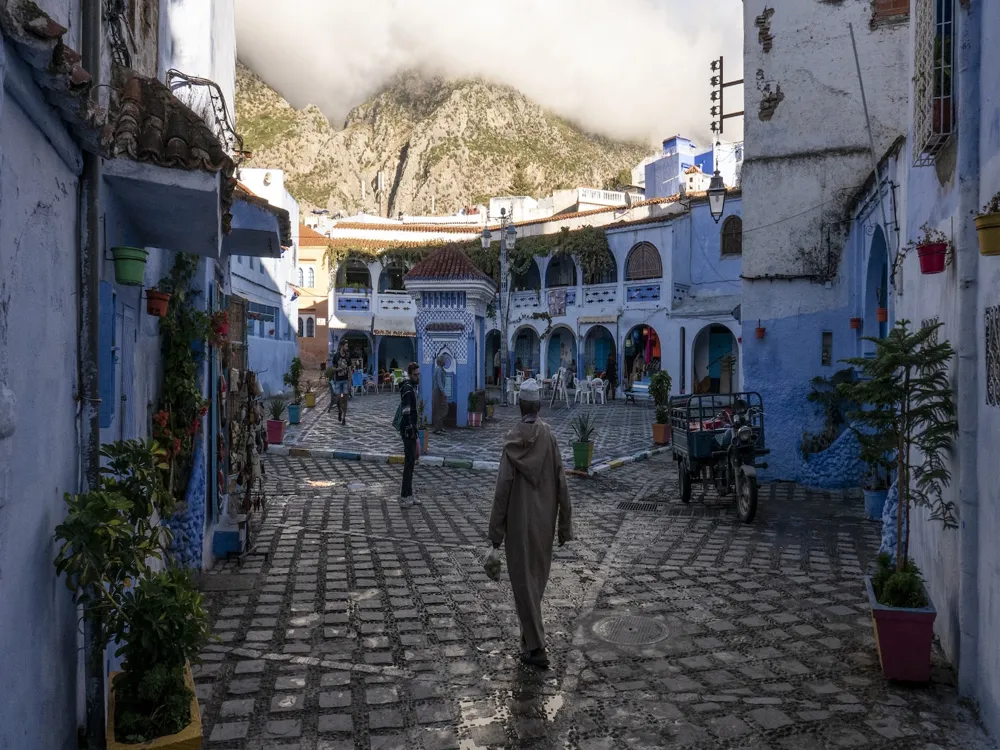
Built in a mix of Moroccan and Andalusian architecture, the medina is the heart of laid-back Chefchaouen. Exploring the streets and the local houses and finding the best photography shots are the main things to do here. At the centre of Medina lies the cobbled Plaza Uta El-Hammam, lined with street food stalls, cafes, and restaurants. The Chefchaouen Kasbah is also located within the medina.
The 15th-century clay-brown building houses a lovely garden, a former prison, an ethnographic museum, and an art gallery. The top of the main minaret offers a spectacular view of the city.
Read More
Ethnographic Museum of Chefchaouen
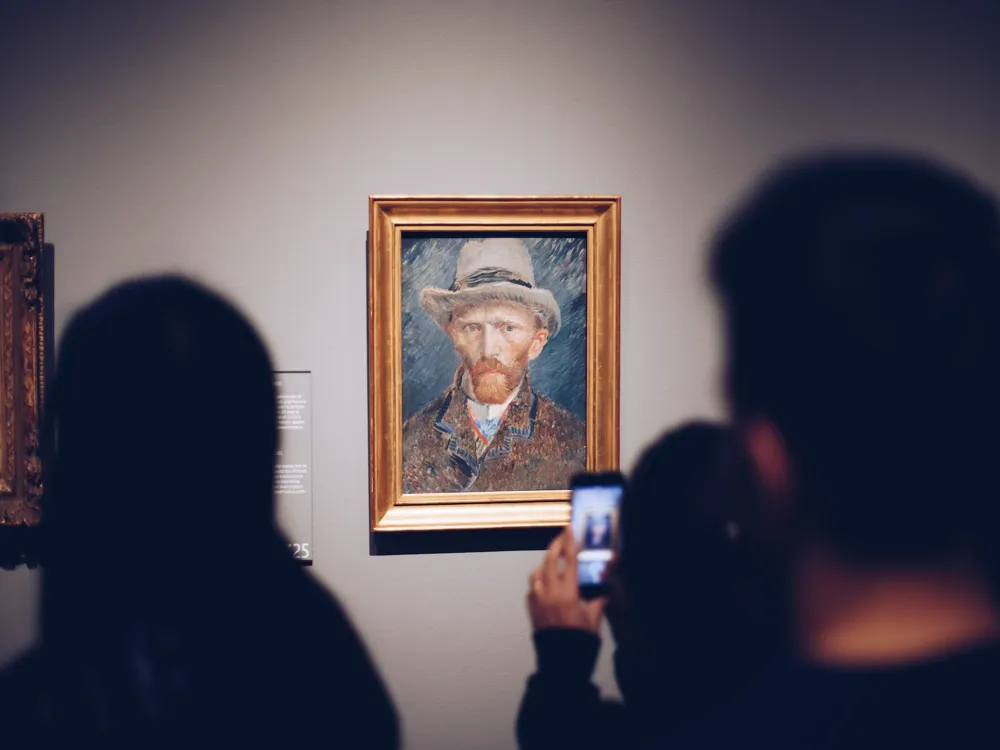
The Ethnographic Museum of Chefchaouen displays several artefacts that reflect Morrocan culture, traditions, and heritage. It is housed within the 15th-century Chefchaouen Kasbah in the town centre of Plaza Uta el-Hammam. The museum offers an insight into how art, craft, and trade evolved in the region, from prehistoric hand tools and spearheads to pottery wheels and pre-Roman tools to modern-day weapons.
There are separate workshops dedicated to plaster carving, mosaic works, painting with brushes and pigment, carpentry, and so on. Significant exhibits include floor mosaics taken from the remains of the ancient city of Volubilis and detailed maps of old trade routes.
Read More
Chefchaouen Blue Streets
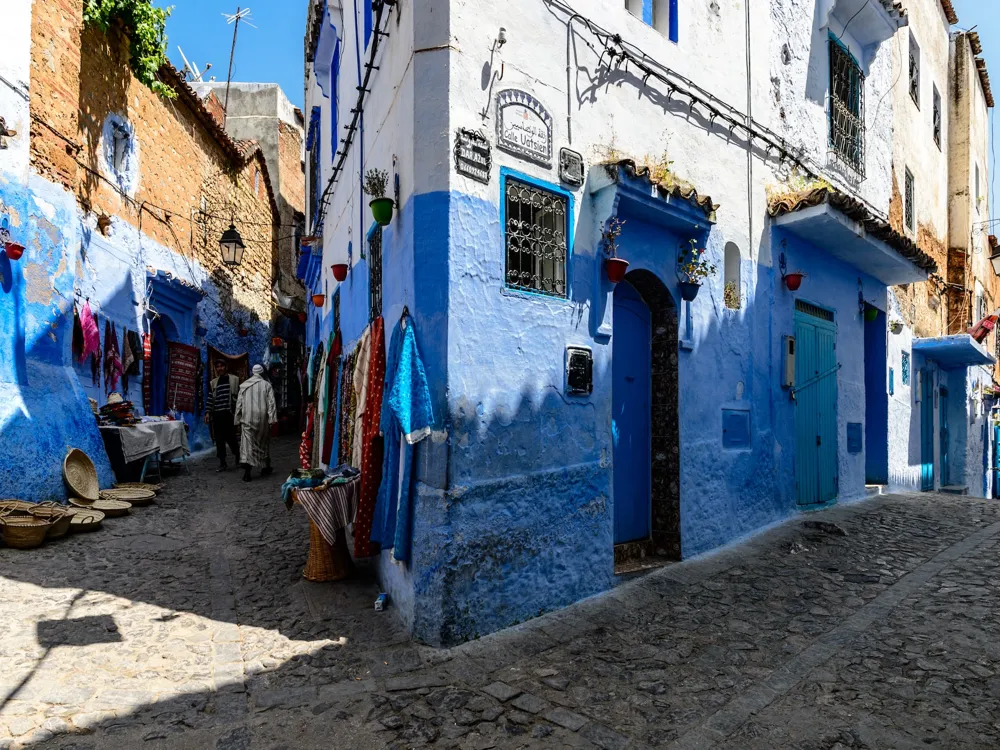
Nestled within the serene backdrop of the Rif Mountains, Chefchaouen is best explored on feet. The best place to experience the street life of Chefchaouen is the old medina. The blue streets of Chefchaouen create a stunning background for photographs. Some locations that have been made popular for their Instagramworthiness may charge a small amount for posing.
Grand Mosque Chefchaouen
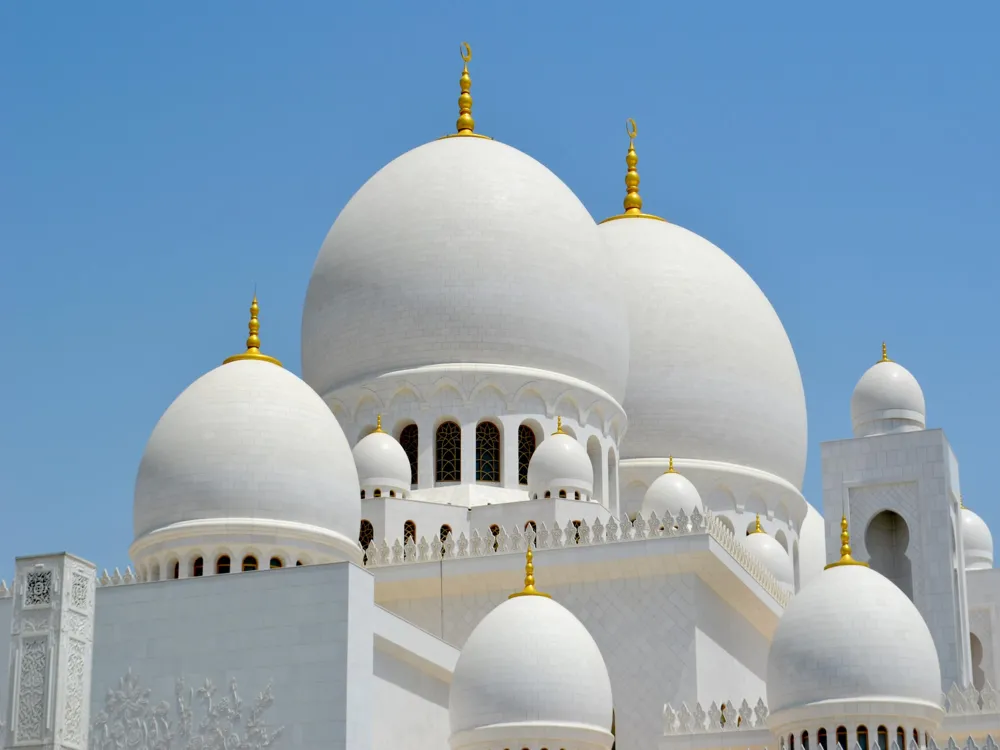
The Grand Mosque of Chefchaouen is the town’s oldest Islamic worship place and the principal mosque for Friday namaz congregations. Located at the central Plaza Uta el-Hammam, the clay red and brown shades of the Grand Mosque set it apart from the usual blue and white of Chefchaouen. The interiors are closed to non-Muslim visitors, but they can admire the structure's facade from the outside.
Sprawled over 130 square metres, the mosque follows Andalusian and Arabic architecture styles with a large courtyard, a prayer hall, a tower or minaret, a madrasa school, and ablutions or cleansing chambers. The octagonal minaret that towers over the city’s medina makes the mosque stand out.
Read More
Hammams in Chefchaouen
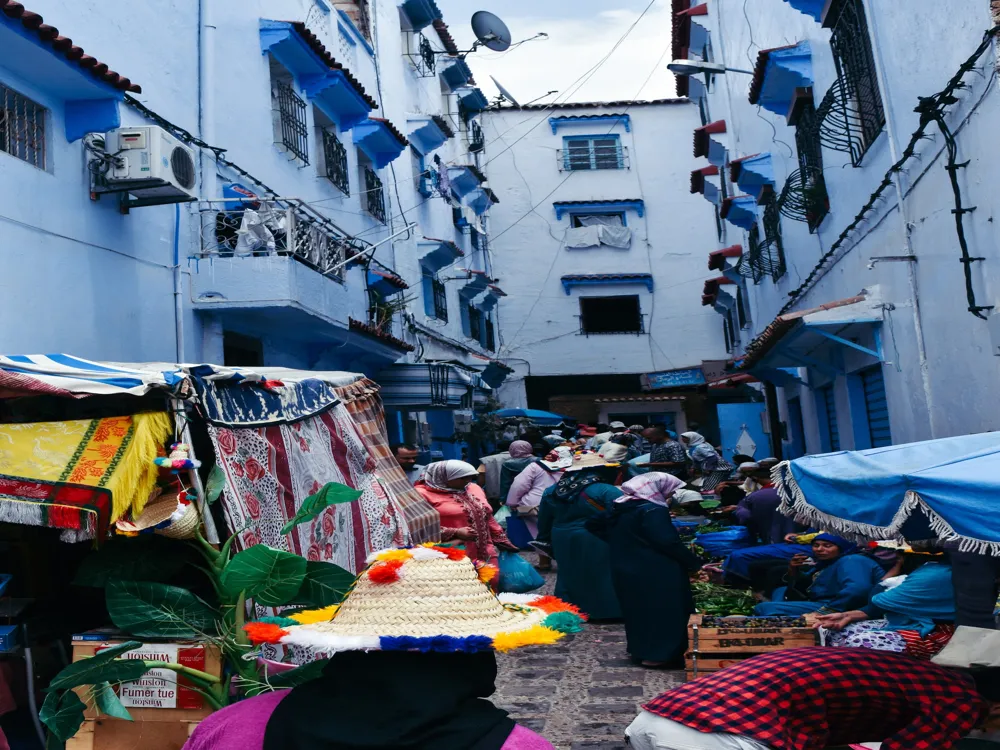
A derivative of a prominent Islamic culture, Chefchaoueun has several hammams or public baths where you can experience authentic cleansing. Located just off Plaza Uta el-Hammam is Hammam el-Balad, the city’s first public bath dating back to the 16th century. Hammam el-Hamra and Hammam Meslouhi are two other prominent public baths here.
The ‘cleaning women’ of the hammam will wash, lather, scrub, and massage in an hour-long process. You will be sharing the sauna with other women. For local hammams, you will need to bring your own towel, scrubbing mitt, flip-flop sandals, and a change of undergarments. If you have any special haircare preferences, bring along your shampoo as well. The local hammams have separate timings for men and women. There are luxury hammams in Chefchaouen as well, which are similar to a spa experience. There is one named Art du Bien-être near the plaza. Outside the medina, Lina Ryad & Spa is a highly-recommended spa that includes accommodation and dining. In luxury hammams, you will be treated with traditional products like natural Moroccan clay and the black, scented hammam soap that is widely available in the markets. You may even be served hot tea or juice afterwards. The luxury hammams are pricier than local ones but provide more privacy and modesty.
Read More
Plaza Uta el-Hammam
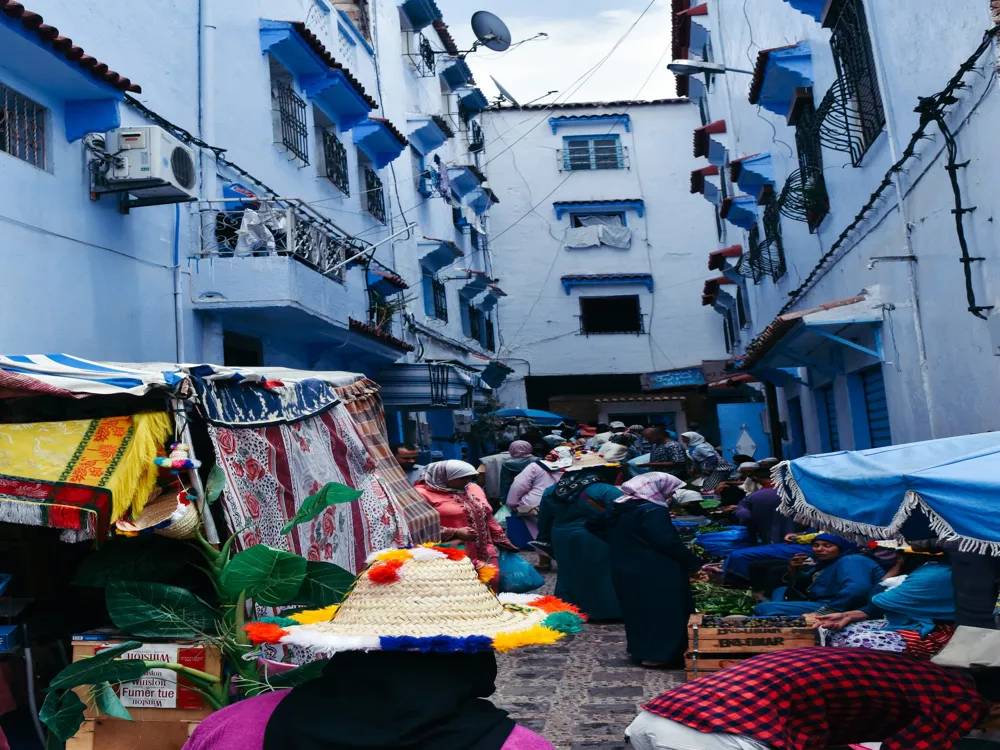
Situated within the medina of Chefchaouen, Plaza Uta el-Hammam is the main cobblestoned esplanade designed with Arabian and Spanish influences. It is lined by local shops, alfresco cafes, and Mediterranean trees like olives, figs, and mulberries. The plaza houses the 15th-century Grande Mosque and the clay-brown coloured fortress prison of Kasbah that now serves as the Ethnographic Museum. .
Plaza Uta el-Hammam, like the rest of Chefchaouen medina, is painted in different shades of blue. This should be your destination if you want to savour the local cuisine or shop for souvenirs. It is the place to simply sit with a cup of coffee and a book, and enjoy the laid-back culture of Chefchaouen at its best. The majestic Rif Mountains girdling the city can also be admired from the plaza
Read More
Ras El Maa Waterfall
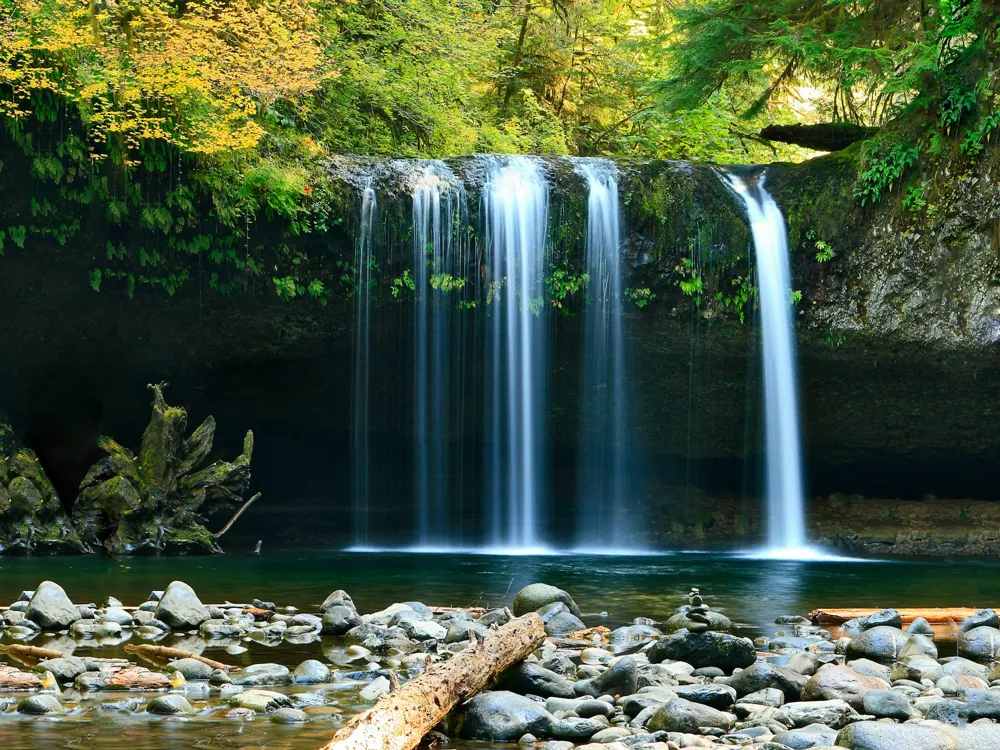
Ras El Maa Waterfall is a perfect one-day hike destination for nature lovers and adventure addicts alike. The waterfall comprises a series of brisk cascades that give way to a gurgling spring. It eventually empties into the Mediterranean Sea. The rocky terrain that beds the waterfall and the surrounding flora creates a refreshing environment for relaxation and a picturesque one for pictures. The hike is suitable for people of all ages and can be completed up and down in a couple of hours.
Read More
Rif Mountains Hike
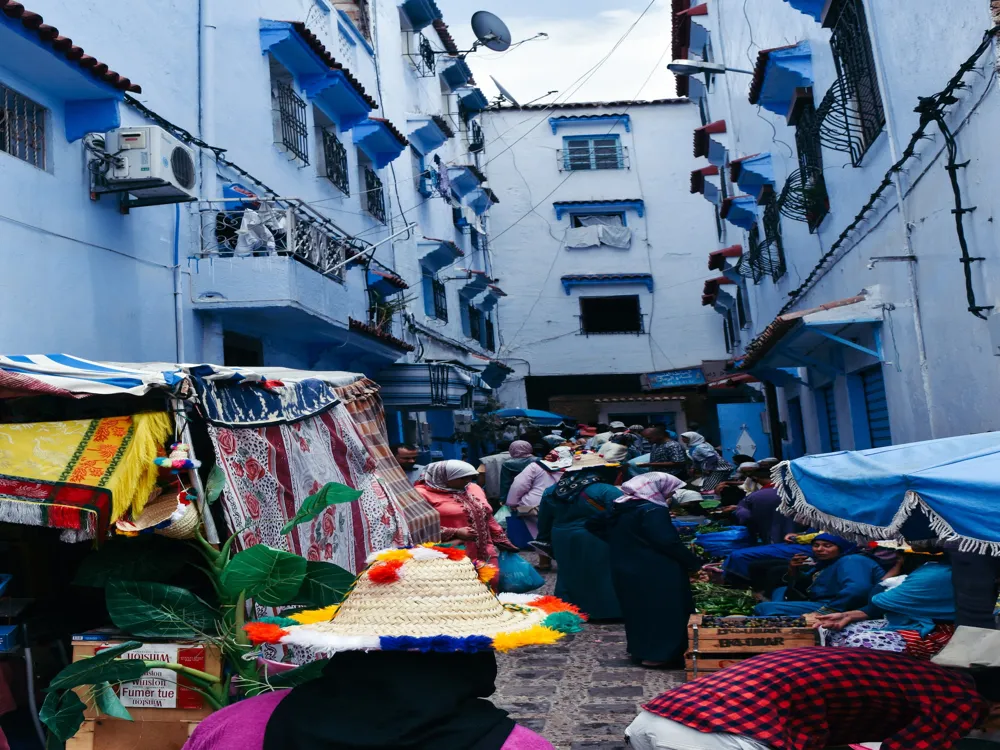
The Rif Mountains surround the quaint town of Chefchaouenn and offer some exciting and offbeat hiking trails. It is Morocco’s northernmost mountain chain that slopes upwards from the Mediterranean Sea to the east side of Tangier. The Akchour Waterfalls hike is one of the most popular treks that take you through the Talassemtane National Park. Mount Tissouka and Sfiha Telj are other exciting trails here.
This takes nearly 10 hours to complete from the foothills above Chefchaouen. You can stop at the Ain Tissimlane springs for a break and refreshments and then continue to the summit of Tissouka. A ridge connects Tissouka to Sfiha Telj - both peaks are at around 2,000 metres - from where you can walk back down to the town. Mount Lakraa is the highest peak in the Talassemtane National Park, but the scenic trek to the top is of medium difficulty and takes only 6 hours to complete. You can either retrace your steps or descend to the tiny hamlet of Machkralla for lunch and take a cab back. It is suggested that you take a local guide with you if it is your first time in the region.
Read More
Spanish Mosque Chefchaouen
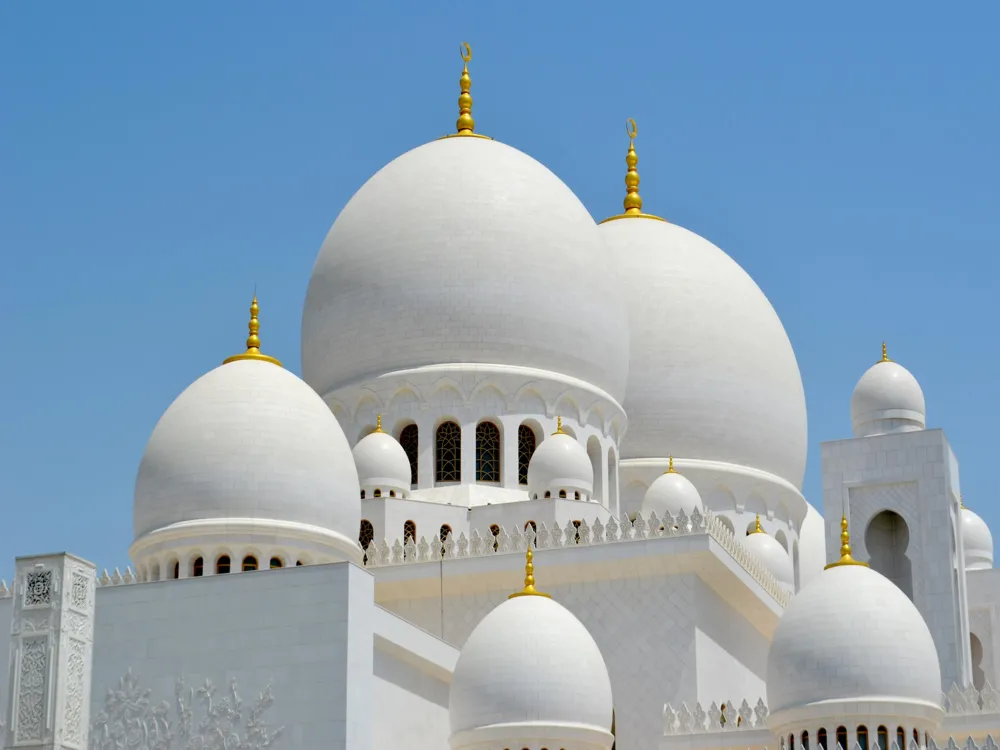
Beyond the blue streets of Chefchaouen, the Spanish Mosque stands atop a hill as the town's most-visited sunrise and sunset point. The trail begins from Bab-el-Ansar, the eastern gate of the town’s medina, and passes the River Ras el’Ma giving way to a paved pathway lined with prickly pear and agave cacti plants on both sides. The track culminates in a bridge and around a dozen final steps to take you to the top from where the view can be enjoyed.
It was built in the mid-1920s during Spain’s colonial rule of Morocco. On a clear day, the sparkling white limestone peaks of the Rif Mountains stand out against the azure blue Mediterranean sky. To pacify brewing tensions with the natives, Spanish military general Fernando Capaz constructed the mosque overlooking the town. However, the local population never accepted it as a house of worship. The mosque has been abandoned for the most part of its existence. The Andalusian-style building was considered impure and got boycotted by the residents. Even now, people visit the mosque only to enjoy the picturesque view of the Chefchaouen medina from the hilltop during sunrises and sunsets.
Read More
Chefchaouen Travel Packages
View All Travel Packages Chefchaouen
Nearby Places Chefchaouen
Browse Package Collections
Browse Hotel Collections











